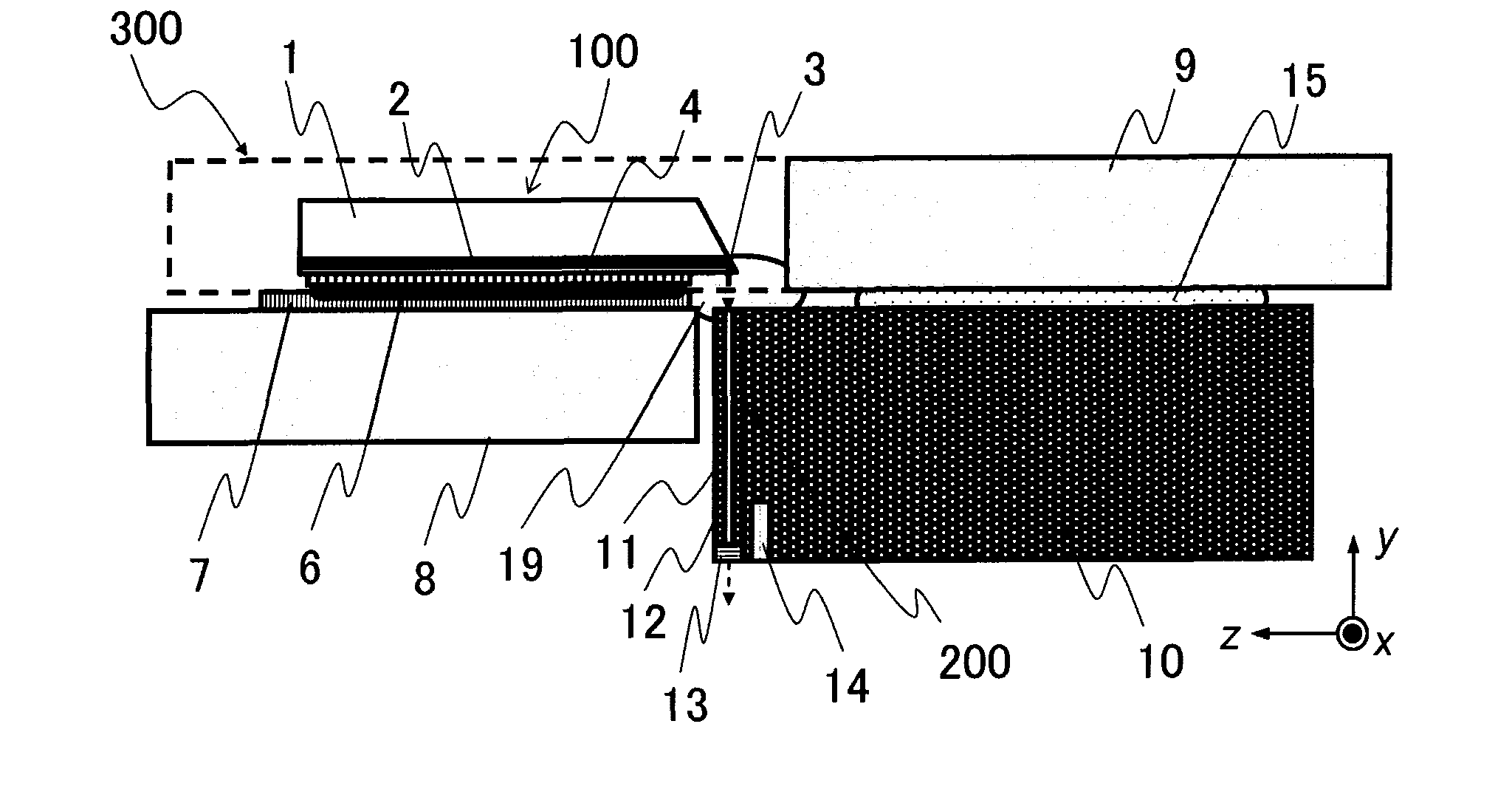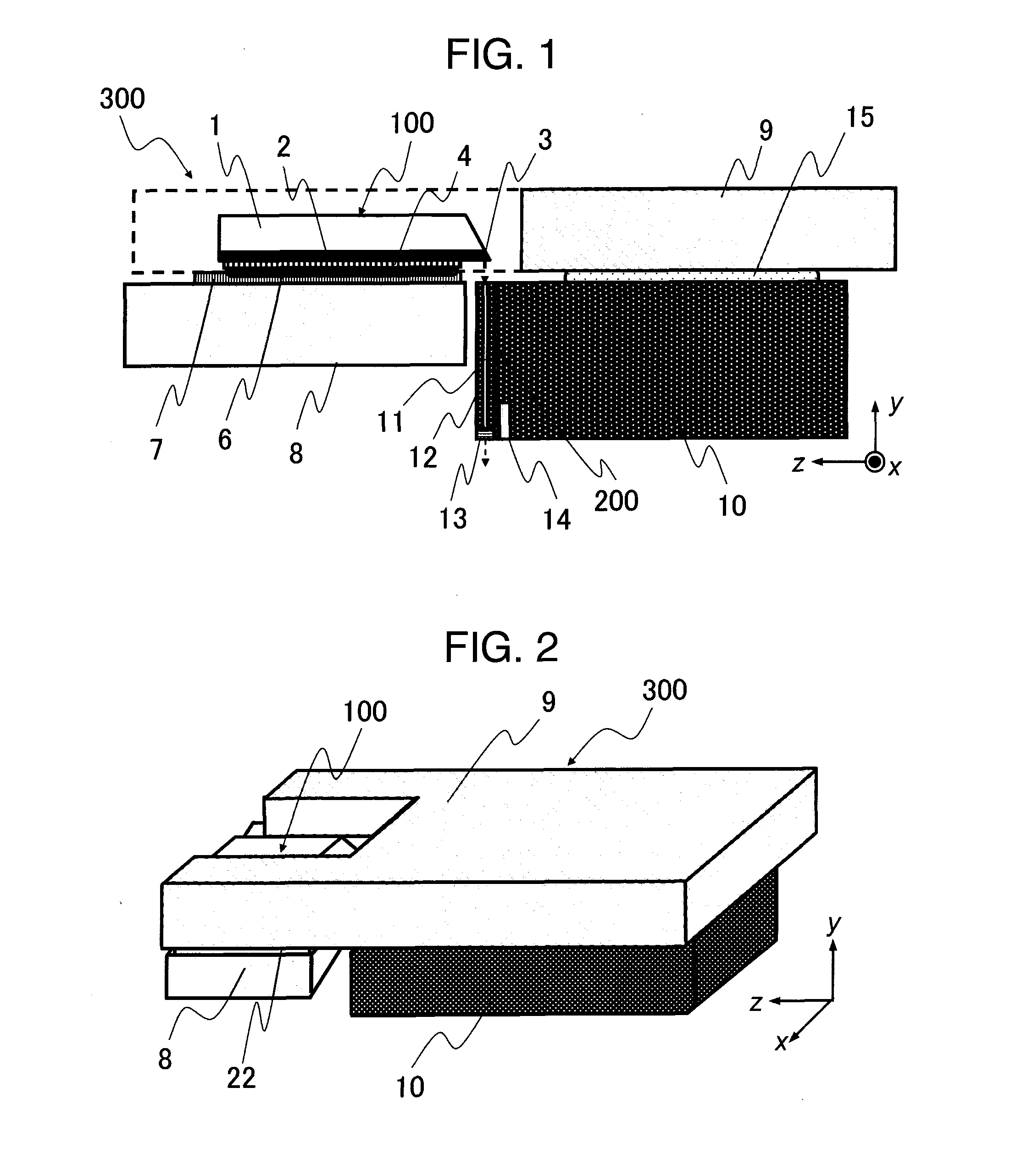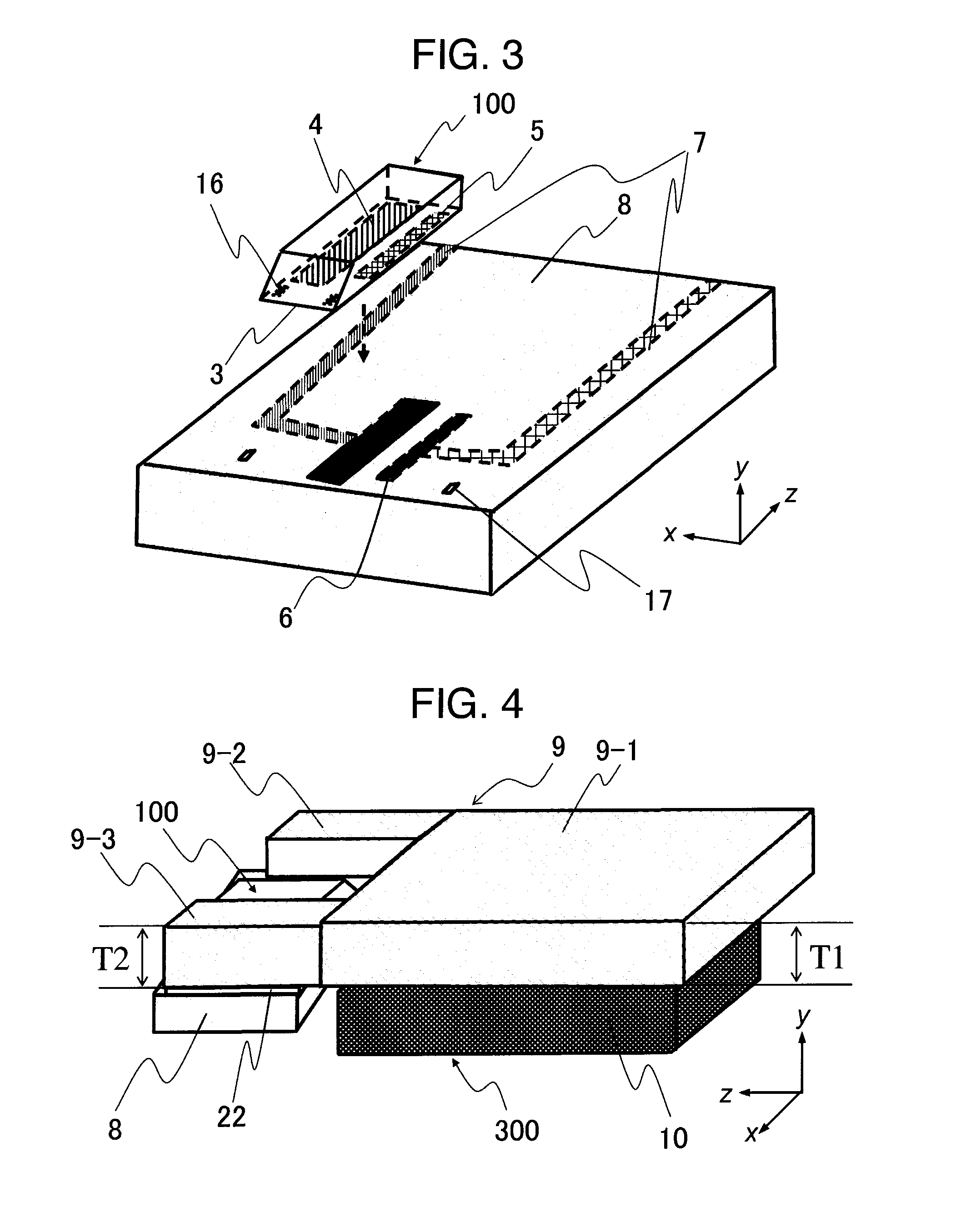Thermally-Assisted Magnetic Recording Head
a technology of magnetic recording head and magnetic recording head, which is applied in the field of magnetic recording head thermally assisted, can solve the problems of difficult to increase coercive force, reduce distance, and thermal instability of grains, and achieves the effects of ensuring good floating characteristic, minimizing slider warping, and high efficiency
- Summary
- Abstract
- Description
- Claims
- Application Information
AI Technical Summary
Benefits of technology
Problems solved by technology
Method used
Image
Examples
embodiment 1
[0061]FIG. 1 is a cross-sectional view of a thermally assisted magnetic recording head 300 of this embodiment cut along a rotation circumferential direction of a recording medium (magnetic disk) not shown. FIG. 2 is a perspective view of the thermally assisted magnetic recording head 300 shown in FIG. 1. In FIG. 1, FIG. 2 and other figures, a Cartesian coordinate system is shown for the understanding of a positional relation of the thermally assisted magnetic recording head 300 (or its part, e.g., slider 10) among these figures. In either of these figures, a z-axis represents the direction in which the recording medium advances relative to the magnetic head (direction of movement) and a y-axis represents the direction in which the magnetic head is secured to the slider. The direction of advance of the recording medium in the hard disk drive is also referred to as a rotational direction of the magnetic disk (a circumferential direction of the magnetic disk at rest). The slider 10 is ...
embodiment 2
[0080]FIG. 4 is a perspective view of another embodiment of this invention, schematically showing a magnetic head 300 that, instead of the so-called recessed type second submount 9 shown in embodiment 1, uses a second submount 9 composed of three flat (platelike) submounts 9-1, 9-2, 9-3 assembled into a recessed structure. In this embodiment that does not form the second submount 9 as one integral structure, there is an advantage that the manufacturing process of the second submount 9 does not require a special fabrication. In this structure, consideration needs to be taken of thickness tolerances of the submounts 9-1, 9-2, 9-3 and the thickness T1 of the submount 9-1 is preferably made larger than that T2 of the other submounts 9-2, 9-3. Since these submounts 9-1, 9-2, 9-3 are each formed with wiring, it is necessary to use a soldering material or a conductive adhesive in connecting the submount 9-1 with the submounts 9-2, 9-3.
embodiment 3
[0081]FIG. 5 is a perspective view of a magnetic head 300 of still another embodiment of this invention. In this embodiment, although the integrally formed second submount 9 is used as with embodiment 1, its width (in the x-axis direction) L1 is set wider than the width L2 of the slider 10. Between the edges of the undersurface of the second submount 9 (two sides extending in the z-axis direction) and the sides of the slider 10 (y-z plane) is applied a third bonding agent (heat dissipating material) 18 with high heat conductivity.
[0082]In a hard disk drive, as the magnetic disk rotates, the slider 10 floats because of an air stream produced by the rotation. This results in the slider 10 being easily cooled depending on the velocity of the air stream. On the other hand, the adhesive with very high heat conductivity of around 20 W / mK is often mixed with metal particles such as silver, exhibiting a characteristic property of high elastic modulus or hardness. With such an adhesive havin...
PUM
| Property | Measurement | Unit |
|---|---|---|
| refractive index | aaaaa | aaaaa |
| floating distance | aaaaa | aaaaa |
| length | aaaaa | aaaaa |
Abstract
Description
Claims
Application Information
 Login to View More
Login to View More - R&D
- Intellectual Property
- Life Sciences
- Materials
- Tech Scout
- Unparalleled Data Quality
- Higher Quality Content
- 60% Fewer Hallucinations
Browse by: Latest US Patents, China's latest patents, Technical Efficacy Thesaurus, Application Domain, Technology Topic, Popular Technical Reports.
© 2025 PatSnap. All rights reserved.Legal|Privacy policy|Modern Slavery Act Transparency Statement|Sitemap|About US| Contact US: help@patsnap.com



